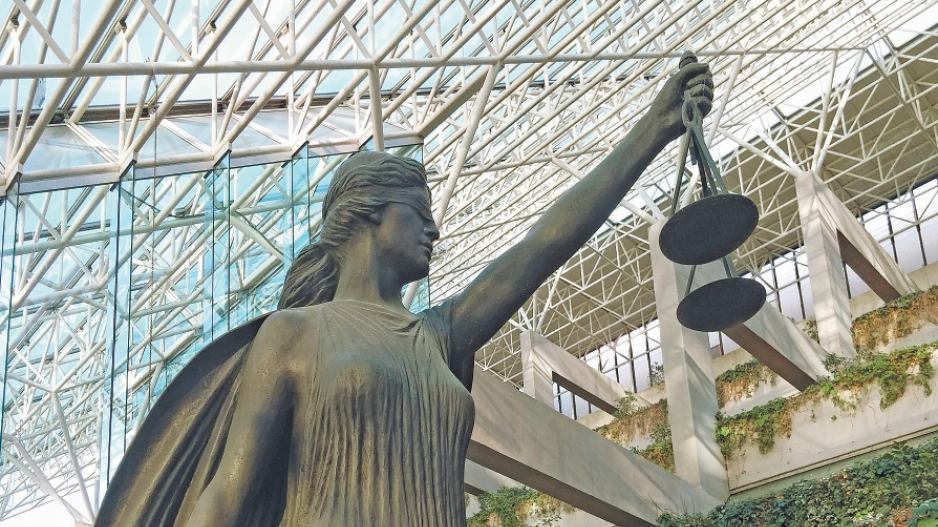One of the border officials who dealt with the arrest of Huawei Technologies Co. Ltd. CFO Meng Wanzhou in December 2018 consulted only Wikipedia in his investigation into the national securities concerns surrounding the Chinese tech executive, court heard this morning.
Canada Border Services Agency superintendent Sanjit Dhillon – one of two superintendents posted at YVR on the morning of Meng’s arrest – confirmed under questioning by defence lawyer Mona Duckett that the online, volunteer-driven encyclopedia was where the CBSA officer found out about possible espionage concerns surrounding Huawei products in places like the United States and Australia.
“Did you check the reliability of this information?” Duckett asked, adding if Dhillon was also aware of the open-sourced nature of Wikipedia information that anyone can edit.
“No,” the CBSA official said, adding that he also did not check CBSA’s own databases for related concerns around Meng’s admissibility into Canada.
Meng’s defence is alleging that the CBSA colluded with the RCMP and U.S. investigators in detaining the Chinese executive for three hours at YVR, collecting electronic devices as evidence without reading her charter rights. Only after the detention was Meng put into RCMP custody and formally arrested.
Duckett went one step further on Wednesday, telling Dhillon she believes that the use of Wikipedia was a cover story - that American law enforcement officials relayed the information about Meng's alleged wrongdoings in the United States to the CBSA superintendent for the purposes of helping to build the U.S.'s case against Huawei.
On that front, Dhillon flatly rejected those accusations - including one that Duckett suggested the CBSA intentionally lengthened the secondary inspection of Meng to coordination information gathering with an outside agency.
"You only intent of questioning Ms. Meng was to gather information for the FBI," Duckett said.
"No," Dhillon rejected.
Crown counsel has maintained that the CBSA had first jurisdiction of inspecting any passenger arriving in Canada to determine admissibility. The “detention,” Crown counsel said, is actually a secondary inspection that many travellers go through upon arriving in Canada.
Duckett on Wednesday morning targetted the claim by Crown lawyers that the proceeding was routine, noting that – had Dhillon checked CBSA’s own records – they would have found more than 50 instances (prior to 2018) of Meng entering Canada without a recorded secondary inspection on national security grounds.
Dhillon, however, refuted those claims – noting that the records may not accurately state if Meng was referred by primary inspection officers to secondary in any of those cases.
Duckett also asked Dhillon why – during his questioning of Meng in 2018 – he specifically asked about Huawei products and the United States, especially when other countries like Canada would be similarly under threat had the national security concerns been true.
“My suggestion is that you didn’t ask about the other countries because you were only concerned about the U.S.,” Duckett said, accusing the CBSA of trying to secure statements and evidence for American authorities – a charge that Dhillon also flatly denied.
“Security concerns in the U.S. could mean similar concerns exist here in Canada,” Dhillon said.
The hearing continued in the afternoon with the testimony of a fifth witness - CBSA agent Sowmith Katragadda. Under the questioning of Crown attorney Diba Majzub, Katragadda - the first CBSA officer to conduct the border check on Meng - said the Chinese executive told him she intended to enter Canada to drop off some furniture at her house in Vancouver before boarding a flight to Mexico later that evening.
Katragadda said he is also aware of the concerns that there would be perception by others that the CBSA was working for other agencies (like the RCMP and the FBI) because similar perceptions have arisen from other cases. But the CBSA officer remains adamant that there was no such contact between the agencies.
The officer also testified that he has never seen a CBSA agent serve an extradition-related warrant, countering defence claims that border officers had to ability to arrest Meng instead of waiting for the inspection to be done, then allowing the RCMP to serve the warrant.




